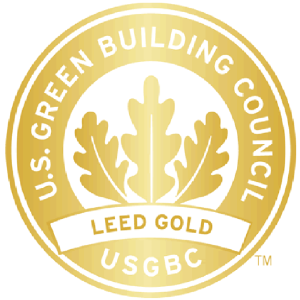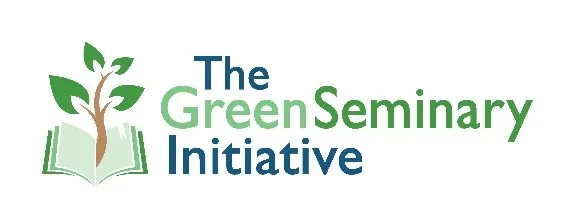God's Creation
Columbia Seminary attends to God’s creation with wonder and thanksgiving, by caring for, celebrating, and sharing the gifts and resources of God’s earth. Accordingly, we are:
tree-lined campus
Beyond the Classroom
Caring about the earth is an important part of who we are, and accordingly, we show that care to the planet on a daily basis.
A group of students, families, staff, and faculty committed to the concept of sustainability and ensuring that it is front and center on our campus and in our lives.
Columbia community garden
Over 14,000 square feet of garden space designed and built by students, maintained by SAGE with compost and rainwater collection.
A Pedagogical Manifesto in the Face of Climate Disruption
Context
The latest climate report from the Intergovernmental Panel on Climate Change (IPCC) is the most dire yet produced by expert scientists (3/19/2023).[1] Within the next seven years, humanity will largely determine its own prospects for flourishing, or lack thereof, and that of countless other species, in “our common home.” All human communities across the world are at a crossroads, some more vulnerable to climate change and others more responsible for it, but all detrimentally affected. Consequently, radical changes in current energy policies, capitalist economies, and collective and individual lifestyles, as well as renewed commitments to dismantling environmental racism and practicing reparative justice, are all required to mitigate a dramatically worsening ecological catastrophe never experienced in human history.
Commitment
Given such urgency, theological educators must address the mounting crisis of climate disruption caused by global warming with full intersectional awareness (see FCITL). We, the faculty at Columbia Theological Seminary, acknowledge that none of our disciplines will go untouched by the physical and conceptual changes wrought by anthropogenic climate disruption. We acknowledge that this “long emergency” has deep roots in white supremacy, (neo)colonialism, and patriarchy, among other intersecting, layered forms of oppression. In such a time as this, ignoring how climate disruption is undermining the flourishing of life is tantamount to theological and pedagogical malpractice. Because “the fight for justice cannot be segregated but must be integrated with the fight for life in all its forms,”[2] we join together in the just cause of sustaining the flourishing of life on a rapidly changing planet.
Pledge
In so doing, we (re)commit ourselves to do the following within and beyond our classrooms:
In the face of impending ecological collapse, we renew our commitment and seek to hold each other accountable to learn how to teach integratively with urgency, creativity, and hope for the ultimate repair of creation (Revelation 21:5).
A Primer Bibliography
Ayres, Jennifer. Inhabitance: Ecological Religious Education. Waco, TX: Baylor University Press, 2019.
Beal, Timothy. When Time Is Short: Finding Our Way in the Anthropocene. Boston: Beacon Press, 2022.
Cone, James H. “Whose Earth Is It Anyway?” Cross Currents 50 (Spring/Summer 2000): 36-46.
Harris, Melanie. Ecowomanism: African American Women and Earth-Honoring Faiths. New York: Orbis Books, 2017.
Joerstad, Mari. The Hebrew Bible and Environmental Ethics: Humans, Nonhumans, and the Living Landscape. Cambridge, Cambridge University Press, 2019.
Johnson, Elizabeth. Asks the Beasts: Darwin and the God of Love. London: Bloomsbury, 2014.
Kimmerer, Robin Wall. Braiding Sweetgrass: Indigenous Wisdom, Scientific Knowledge, and the Teaching of Plants. Minneapolis, MN: Milkweed Editions, 2013.
Rasmussen, Larry L. Earth-honoring Faith: Religious Ethics in a New Key. Oxford: Oxford University Press, 2013.
Wirzba, Norman. This Sacred Life: Humanity’s Place in a Wounded World. Cambridge: Cambridge University Press, 2021.
[1] https://www.ipcc.ch/report/sixth-assessment-report-cycle/
[2] James H. Cone, “Whose Earth Is It Anyway?” Cross Currents 50 (Spring/Summer 2000): 36.
Eco-Friendly
We are committed to wisely using the resources that God has given us by building sustainable new buildings and recycling where we can.
The Vernon S. Broyles Jr. Leadership Center (BLC) was created from the Simon-Law Residence Hall (circa 1932, and over 90 percent of the original building was “recycled” and is still a part of the BLC.
The Marcia Riggs Common, named after Columbia faculty member, Dr. Marcia Riggs, is Columbia’s newest residence hall. It has 35,000 square feet with 51 units, a 66-person capacity, and a monthly energy bill of just $2000.
Significantly, both BLC and Riggs Common share some eco-friendly characteristics:

Columbia Theological Seminary earned a Green Seminary Certification. The certification is a 3-year process that provides the structure, guidance and support that seminaries need to further develop their institution’s commitment to creation care.
The foundation of the program begins with a commitment from a cross-section of school representatives (faculty, staff, students, alumni, etc.) to serve as a Green Team. Together they conduct a self-audit of their existing environmental practices in the areas of: Education – Liturgy, Ritual, and Worship – Building and Grounds – Community Life – Public Leadership.
The Green Seminary Initiative has two convictions: The first is that the religious community has a unique and significant calling to turn back human-caused environmental destruction and to participate in bringing all of creation into health and wholeness. The second conviction is that theological schools should provide clergy and religious leaders with the tools necessary for them to lead their congregations, communities and organizations in meeting their unique call to protect and restore creation.

Columbia’s commitment to sustainability extends into our classrooms. We help ensure future generations of pastoral leaders will continue to care for God’s creation. Therefore, we teach many courses that have a focus on caring for and conserving the earth including:
Biblical Area
Historical Area
Honoring Creation
The Dabney and Tom Dixon Creation Care Sermon Prize goes to the best sermon addressing environmental concerns. DeNoire Henderson MDiv/MAPT ’ 23 won the prize in 2023.
Explore
Apply
We invite you on a transformative journey. We want you to imagine what could be and to shape the not yet.
©2023 Columbia Theological Seminary
Popular Topics